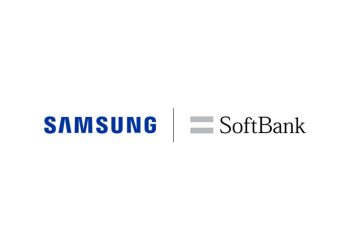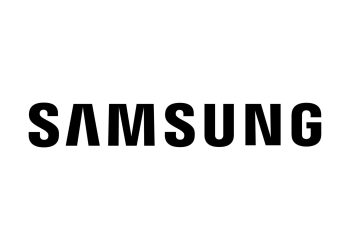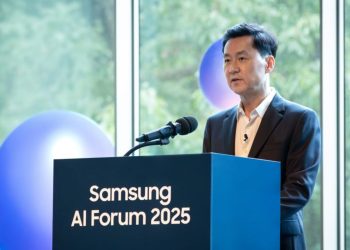Samsung Electronics is gearing up to introduce its first tri-fold smartphone by the end of this year. TM Roh, head of the company’s Mobile Experience Business Division, confirmed the plan during a press briefing at the Galaxy Unpacked 2025 event in Brooklyn, New York, highlighting Samsung’s ambition to explore new form factors that enhance user experiences, particularly in the era of artificial intelligence.
The tri-fold device, which will expand Samsung’s foldable lineup beyond its Galaxy Z Flip and Fold series, represents the company’s most significant design shift in years. Roh emphasized that the firm is working to perfect both the hardware and usability of the smartphone before launch, though the final product name has not been disclosed.
Samsung’s push into tri-fold devices comes as the company doubles down on its vision of AI-powered smartphones. TM Roh, president and head of Samsung’s Device Experience Division, said that smartphones are evolving from communication tools into “AI partners” that can see, understand, and respond to users in real time. He emphasized that hardware innovation optimized for AI services will fundamentally change the mobile experience, with Samsung exploring new device shapes to lead this next era.
At the Galaxy Unpacked 2025 event in New York, Samsung showcased the Galaxy Z Fold 7 and Flip 7, both featuring slimmer profiles and lighter designs to improve comfort and usability. The Fold 7 achieves a thickness of just 8.9 millimeters when folded and 4.2 millimeters when unfolded, while the Flip 7 offers a larger 4.1-inch cover display and a 6.9-inch internal screen. These updates, combined with Galaxy AI features, signal Samsung’s ongoing strategy to merge foldable innovation with enhanced productivity and personalization.
Hints of a tri-fold smartphone have been circulating for months. Earlier this year, at Mobile World Congress 2025, Samsung previewed two concept devices, Flex G and Flex S, which demonstrated the potential of three-panel foldable displays. While those prototypes did not have commercial names, Roh confirmed that the final product—widely rumored as the Galaxy G Fold—is in the final stages of development, with the company prioritizing durability and usability before launch.
The upcoming device is expected to compete directly with Huawei’s Mate X2 Tri-Fold, as Chinese manufacturers aggressively expand in the high-end segment despite global chip restrictions. Industry analysts say the move is critical for Samsung to maintain its lead in the foldable market, where rivals like Huawei, Motorola, and Google are steadily gaining ground. Samsung currently holds the largest market share in foldables, but its dominance has been shrinking with new entrants and rising innovation from competitors.
In addition to foldables, Samsung is preparing to broaden its ecosystem with extended reality (XR) devices. Roh confirmed that the company plans to launch its long-anticipated XR headset, codenamed Project Moohan, before the year ends. Developed in partnership with Google, the device will run on Android XR and aims to deliver immersive experiences that blend virtual and augmented reality. Samsung is also exploring smart glasses, though Roh cautioned that broader partnerships and longer testing cycles will be required before they reach consumers.
Leaked details suggest that the first-generation tri-fold device could feature a 10-inch OLED display that folds twice into a compact form, possibly powered by Qualcomm’s Snapdragon 8 Elite chip. Industry reports also indicate that the smartphone may come with a premium price tag of around $2,900 and could initially launch in South Korea and China, with a global rollout expected once the second-generation model is ready in 2026. Early units are likely to be produced in limited quantities to test market response and address durability concerns.
By the end of this year, the company aims to enable AI features across 400 million Galaxy devices, including older models where hardware permits. The company said that extending AI to mid-range and legacy devices aligns with Samsung’s philosophy of “AI for all,” ensuring that advanced features like real-time translation, content summarization, and intelligent assistance are not limited to new flagship phones.
Image credits: Samsung







